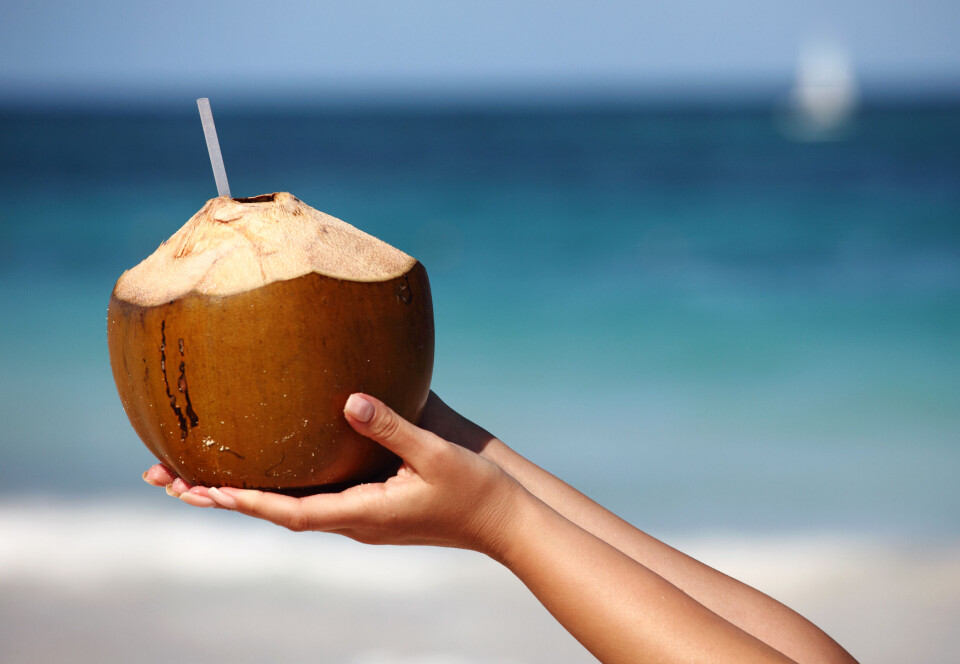-
E-cigarettes pose health risks, warns France’s health watchdog
The devices have “possible medium- and long-term” health effects, the warning says
-
French MPs vote in favour of renewed recognition of UK medical degrees
Post-Brexit rules mean UK degree holders have been limited in their ability to work in France
-
Death after sex on work trip classified as workplace accident under French labour law
Judges said: “To have sexual relations is part of everyday life, like taking a shower or having a meal.”
French public health body’s tips for staying hydrated this summer
From consuming coconut water to drinking before you feel thirsty, we share French health advice on how to avoid dehydration

Drinking before you feel thirsty and eating water-rich foods are among a French health agency’s tips for staying hydrated this summer.
France’s public health insurance agency, Assurance maladie, says avoiding dehydration is crucial for the good functioning of vital organs, as well as avoiding symptoms like fatigue, fever, dark urine, dry mouth and throat, dry skin, and dizziness.
Drinking enough water can also help you to regulate your inner temperature, improve your skin, enable the good functioning of your kidneys, and maintain blood health.
Its advice also includes:
1. Drink before you feel thirsty
If you feel thirsty, then you are already dehydrated, the agency said, confirming advice from Santé Publique France that you should "drink water regularly without waiting to feel thirsty”.
Drinking water regularly is the best way to stop you from ever getting to the point where you feel thirsty.
2. Drink regularly and in small mouthfuls
However, the advice is to drink in small mouthfuls, and drink little and often, rather than forcing down too much water in one go.
Drinking too much water in too little time can also be very dangerous, so it is important to find a balance.
GP Jérôme Marty told BFMTV: “The main thing is to drink regularly, throughout the day. It's better to drink a small amount several times than a lot at once or twice.”
3. Drink more than normal
Usual advice says to consume 1.5 litres of water per day, but this should be increased when temperatures rise, to compensate for how our bodies sweat to regulate our internal temperature.
The Assurance maladie said: "The higher [your body] temperature rises as a result of fever, sporting activity or exposure to the heat, the more the body cools down through perspiration. It is therefore essential to drink more water when outside temperatures are high.”
4. Avoid alcohol
In contrast to water, alcohol is not considered to be a good choice in hot weather. As a diuretic, it makes you go to the toilet more often and therefore makes it easier to become dehydrated.
Coffee and tea can also have the same effect, so they are also to be consumed in moderation, with plain water a better choice.
5. Try coconut water
It may be much less common than normal water, but coconut water could be a more interesting and useful alternative in the summer.
Rich in water itself, it also contains the vitamins B and C, plus minerals such as calcium, potassium, and magnesium. All of these are lost when your body sweats, so replacing them with coconut water can help you feel more hydrated, more quickly.
Try to choose sugar-free versions for the healthiest and most refreshing option.
6. Drink water at room temperature
In hot weather, iced drinks look very appealing, but room-temperature drinks are better for the body, and can actually cool you down more.
This is because the body sometimes reacts to iced liquids by attempting to heat itself up further, as a reaction to the sudden cold.
GP Alain Ducardonnet told BFMTV: “If you drink something cool once, it's fine. But if you drink something very cold, you get the sensation of coldness, except that you're giving the body, particularly in the stomach where there are sensors, the information that the temperature is dropping sharply, so it’s going to have to put the boiler back on.”
Drinking hot drinks can raise your internal temperature, and cause the body to lower it, but this can then cause the body to sweat, risking dehydration. The best thing, therefore, is to “drink water at room temperature, or a little cooler”, said Dr Ducardonnet.
7. Eat water-rich foods
Water found in food can also count towards your overall water consumption. In summer, this may feel easier, as many fresher fruits and vegetables contain high water content. These include cucumbers, radishes, chicory, tomatoes, cucumbers, melon, and watermelon.
Eating them raw is best, as cooking can cause them to lose much of their water content.
8. Carry a bottle with you
If you are spending a lot of time outside the home, it is a good idea to carry a refillable water bottle with you, so you can drink regularly (and not have to buy polluting plastic bottles).
Refilling your bottle throughout the day can help you to apply the above advice wherever you go.
Related articles
Warm weather, drought and fires: why it may feel like summer in France
Explainer: France’s ‘heatwave plan’ and how it may affect residents
























